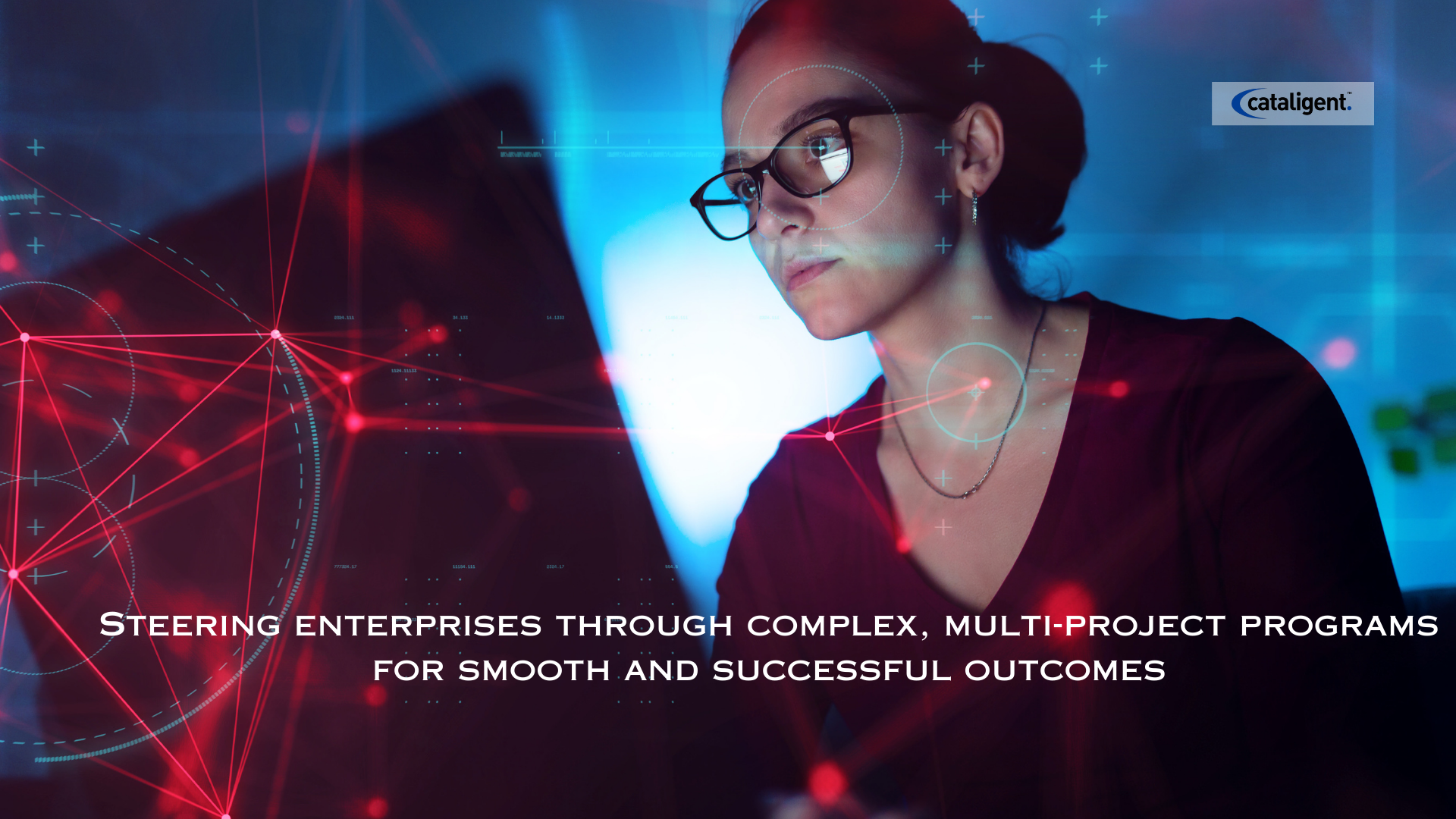Introduction
Large organizations rarely deal with a single transformation initiative at a time. Instead, they manage dozens—sometimes hundreds—of overlapping programs across digital, operational, regulatory, and cultural domains. Each program has its own stakeholders, timelines, dependencies, and risks. The result? Chaos, duplication of effort, and diluted outcomes.
Complex Program Navigation is the consulting discipline focused on orchestrating this complexity. It enables enterprises to see the big picture, align priorities, and ensure that every project contributes meaningfully to strategic goals. Rather than drowning in initiatives, organizations learn how to master them.
What is Complex Program Navigation?
Complex Program Navigation is the structured process of guiding organizations through interconnected projects and programs. Unlike project management—which focuses on delivery within a single initiative—this discipline looks across multiple programs to:
- Align strategic intent with execution.
- Resolve conflicts between overlapping projects.
- Optimize resource allocation across competing demands.
- Reduce risk by identifying interdependencies.
- Create enterprise-wide visibility into progress and outcomes.
It’s the difference between managing trees and managing the forest.
Why Complex Program Navigation Matters
1. Volume of Initiatives is Growing
Digital transformation, compliance updates, customer experience redesigns, and sustainability programs all run simultaneously. Without navigation, leaders lose visibility.
2. Interdependencies Create Hidden Risks
One program’s delay can derail another. Without coordination, risks multiply exponentially.
3. Resource Bottlenecks Are Common
Talent, technology, and capital are limited. Consulting ensures resources are allocated to the initiatives that matter most.
4. Strategic Drift Is Real
Organizations often launch programs with enthusiasm but lose alignment with strategic objectives over time. Navigation prevents drift.
5. Stakeholder Fatigue
When employees juggle too many change initiatives, engagement plummets. Consulting helps sequence programs to avoid burnout.
How Complex Program Navigation Works
1. Portfolio Mapping
Consultants create a single view of all initiatives—strategic, digital, compliance, and operational—highlighting overlaps and interdependencies.
2. Prioritization Frameworks
Programs are evaluated based on value creation, risk reduction, and strategic alignment. This ensures high-value initiatives receive the most attention.
3. Governance Structures
Consulting establishes decision-making bodies, escalation paths, and reporting rhythms to maintain enterprise-wide coordination.
4. Dependency and Risk Management
Critical interdependencies are tracked, with proactive measures put in place to mitigate risks before they escalate.
5. Resource Optimization
Consultants analyze workforce and budget availability, ensuring resources are deployed effectively across initiatives.
6. Change Orchestration
Instead of overloading employees, change is sequenced for maximum adoption and minimal disruption.
Practical Applications of Complex Program Navigation
Digital Transformation at Scale
A global enterprise may run multiple digital initiatives—ERP modernization, AI adoption, cloud migration. Navigation ensures these projects support one another instead of competing for resources.
Regulatory Compliance Waves
When new compliance standards roll out across different regions, consultants align timelines, reporting, and controls to avoid duplication.
Mergers and Acquisitions
During integration, program navigation aligns cultural, operational, and technological efforts to prevent fragmentation.
Enterprise Sustainability Goals
When sustainability targets intersect with operations, supply chain, and finance, navigation ensures unified progress.
Large-Scale Innovation Portfolios
Organizations experimenting with multiple innovation pilots need navigation to prevent resource dilution and focus on scaling winners.
Why Businesses Need Complex Program Navigation
- Clarity Over Chaos – Enterprises gain visibility into the whole portfolio, not just individual projects.
- Alignment With Strategy – Initiatives stay tethered to long-term goals rather than chasing short-term wins.
- Efficient Use of Resources – Scarce talent and capital are applied where they create the most impact.
- Reduced Risk Exposure – Dependencies are mapped, risks mitigated, and costly surprises avoided.
- Employee Engagement – Sequenced change prevents fatigue and builds sustainable momentum.
The Cataligent Edge
Cataligent specializes in guiding enterprises through the complexity of multi-program transformation. With structured methodologies and the CAT4 platform, Cataligent delivers clarity, alignment, and control over even the most intricate program portfolios. Instead of being overwhelmed by competing initiatives, organizations gain a synchronized roadmap that accelerates progress and maximizes impact.
Cataligent turns multi-project chaos into coordinated transformation—empowering organizations to achieve more with confidence and control.

